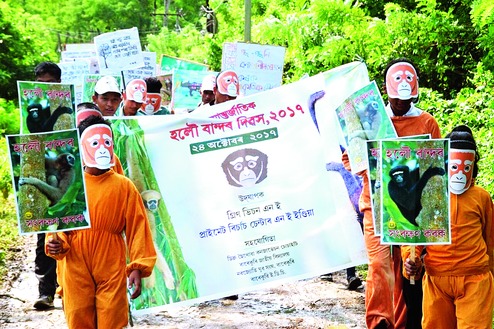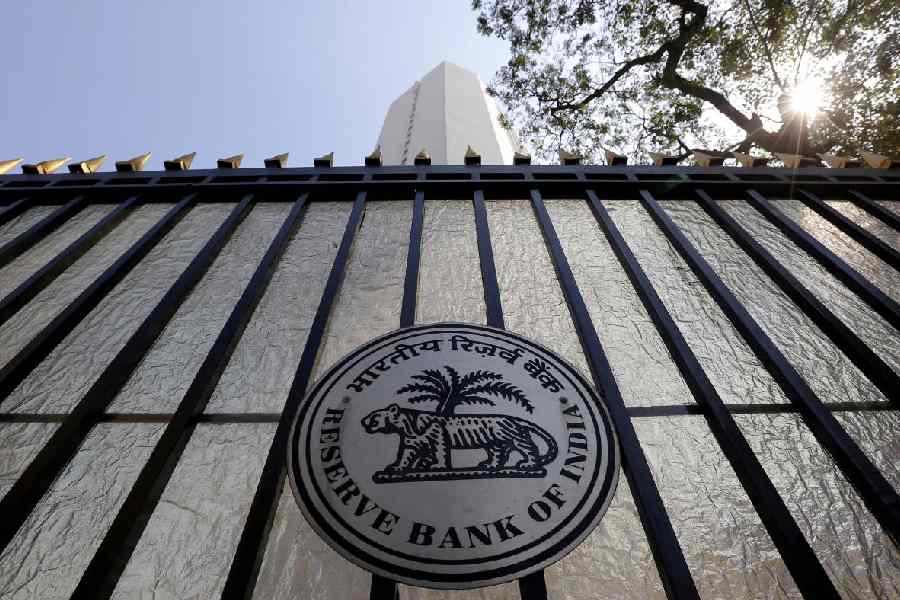
Tinsukia: Residents of Barekuri in Tinsukia district, along with Green Vision NE and Guwahati-based Primate Research Centre, on Monday celebrated World Gibbon Day, showering black-cheeked gibbons called Kalia, Bogie and their yet to be named 20-day-old child, with treats of banana.
This is the first such celebration in the state after 2015 was named the Year of the Gibbon by the International Union for Conservation of Nature (IUCN), in a bid to raise awareness about the threats gibbons face. It is feared gibbons will be one of the next group of animals to face global extinction in the wild.
The four villages of Barekuri - Digal Haku, Nau-motapung, Puroni-Motapung and Lesenga Tarazan - are home to 23 hoolock gibbons, where one can see an untold story of man-animal love.
Green Vision NE assistant general secretary Diplob Chutia told The Telegraph, "We started the day with a rally with the message of conservation of hoolock gibbons and other wildlife species."
"The rally was no ordinary one as a few students dressed up as gibbons themselves, while others in the rally wore gibbon masks," Chutia, also a resident of Digal Haku, said.
He said many residents participated in the art and poster-making competition, which was organised on the theme of gibbon conservation. The winners were awarded a book each on wildlife.
Two documentaries were shown followed by a meeting to discuss problems faced in conservation of gibbons. "We have called upon the state government to do away with naked electric wires which are a cause of electrocution of gibbons in the area," Chutia said.
On June 16 this year, Kalia's three-year-old offspring Kick, was electrocuted at Digal Haku. Three other hoolock gibbons also lost their lives to overhead wires.
Gibbons are natives of the evergreen tropical rainforests of the Southeast Asian region, from eastern India to southern China and southwards through mainland South-east Asia to Java, Borneo, and Sumatra.
Increased use of human land causing deforestation is removes rainforest habitat, causing gibbon population to decline rapidly.










